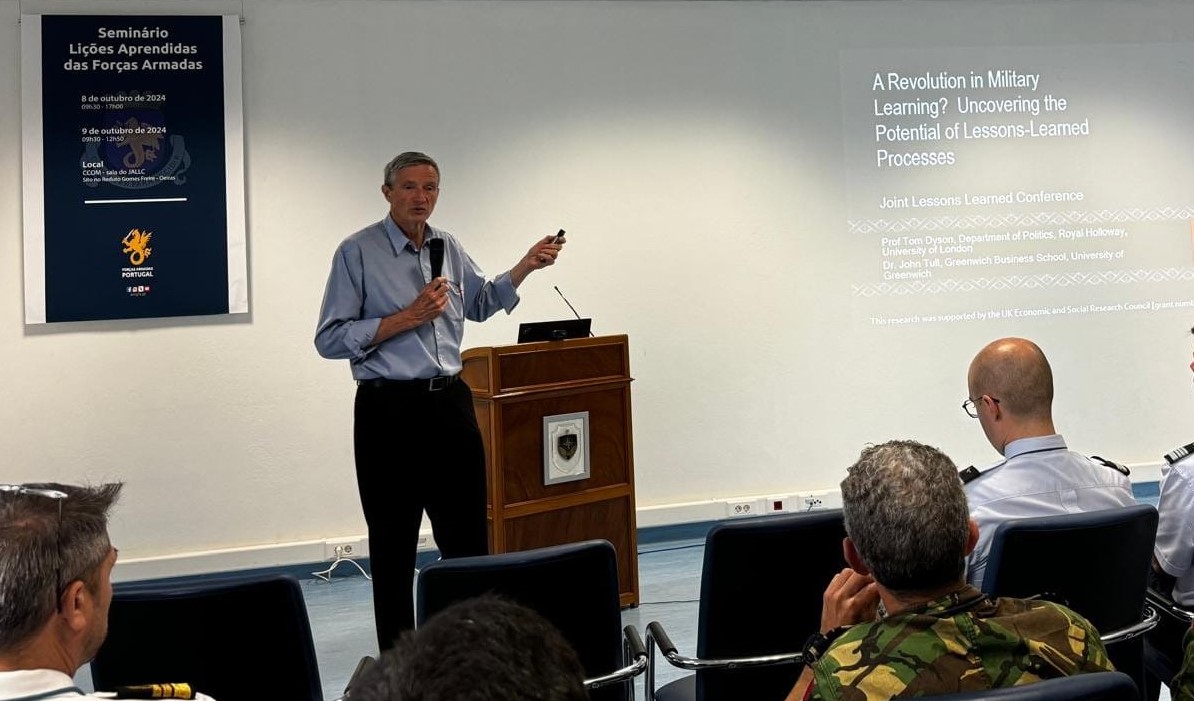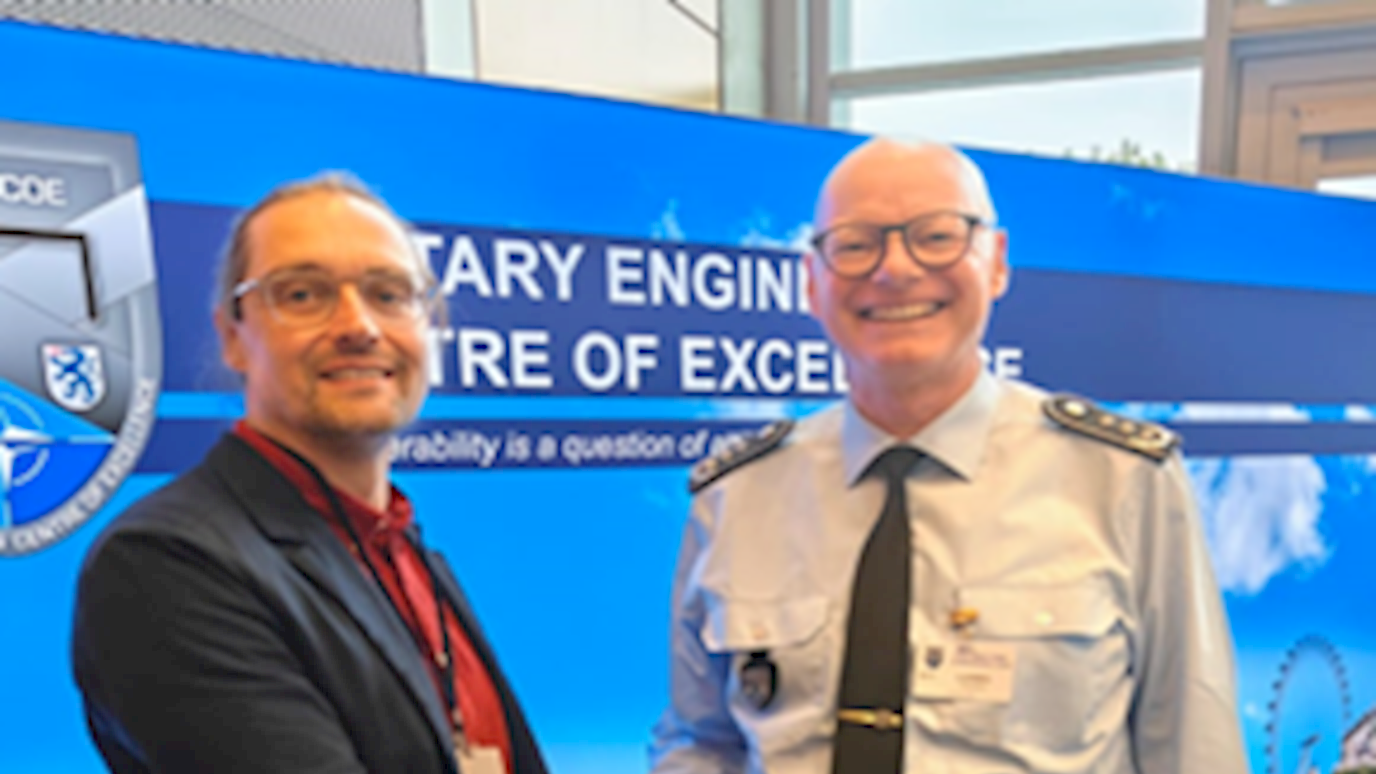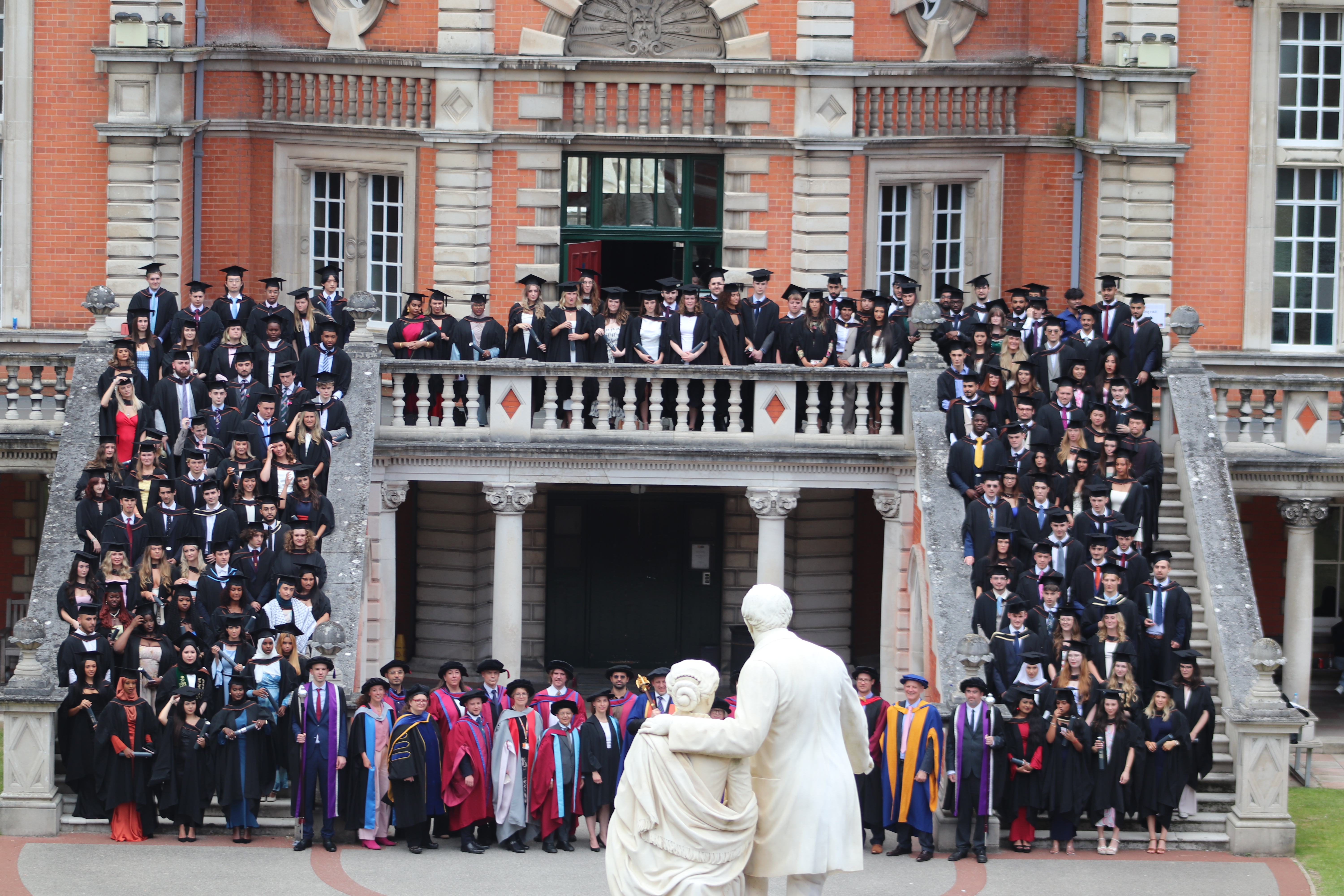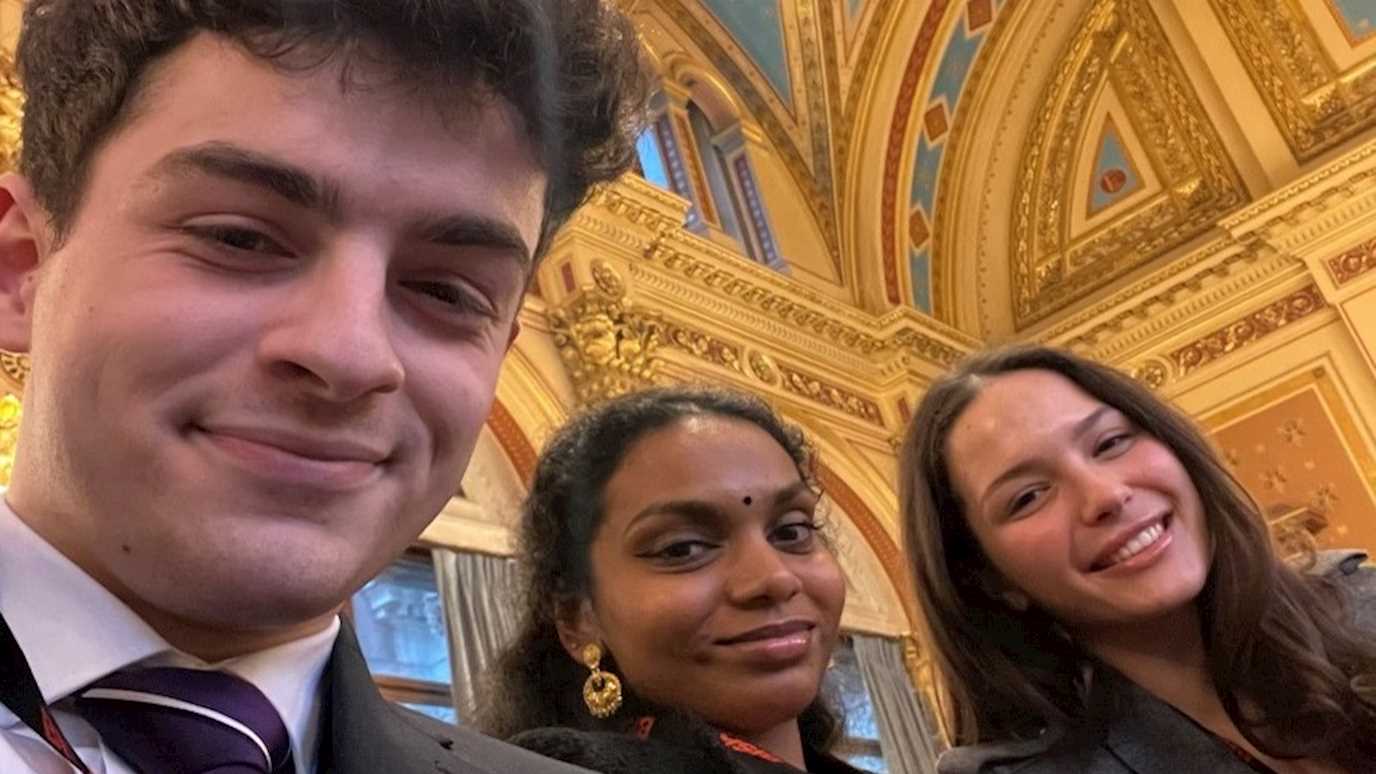On Wednesday 17th and Thursday 18th April Prof Tom Dyson (PIRP) and Dr John Tull (University of Greenwich, formerly of Royal Holloway College), presented the findings of Prof Dyson’s ESRC Grant ‘A Revolution in Military Learning? Understanding the Potential of Lessons Learned Processes’ (ES/V004190/1) at the 2024 NATO Lessons-Learned Conference (NLLC).
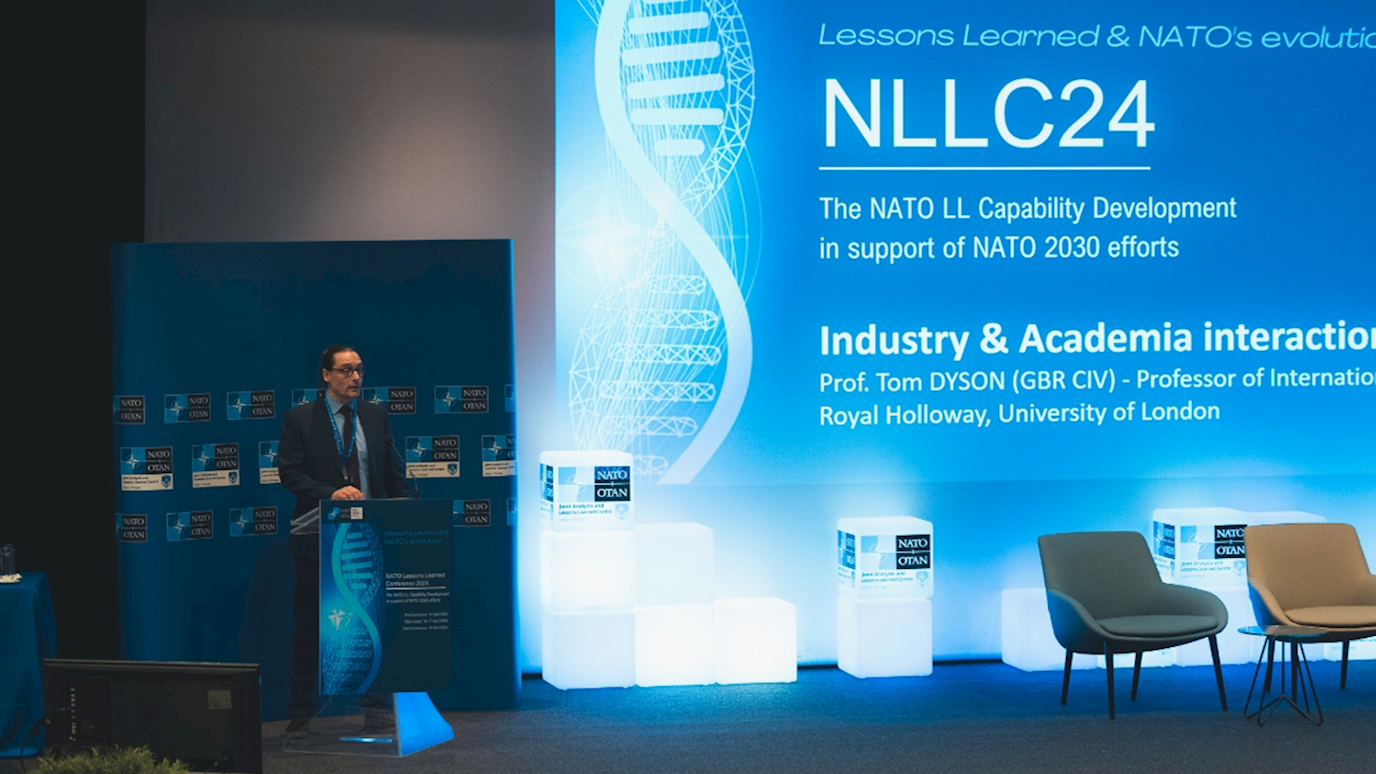
Prof Dyson presenting his ESRC project to the main conference
The annual NLLC, held this year at the Portuguese Military Academy in Amadora, brings together 300 senior military and civil servant representatives from NATO organisations, NATO member-states, partner-states, and other international organisations. Participants consider the lessons for NATO’s warfighting and lesson-learning capability emerging from military operations, military exercises, ongoing conflicts, and research and development. The conference is organised by NATO’s Joint Analysis and Lessons Learned Centre (JALLC) which is dedicated to supporting and enabling the Alliance-wide implementation, sustainment and development of NATO’s lessons learned policy and capability.
The 2024 conference focused on the development of NATO’s lessons learned capability in support of NATO 2030 efforts, with panels encompassing lessons learned in the digital age, enhancing alliance learning through lessons learned sharing and interoperability, and finally, NATO lessons learned capability development in support of other NATO capabilities. Presentations included speeches from NATO leadership, updates on the development of NATO’s lessons learned capability, live hologram presentations on education, training and the future operating environment, and updates on lessons-learned from Ukraine delivered by Ukrainian Armed Forces representatives.

Left to right: Professor Tom Dyson, Major Pedro Silva (ESRC project partner at the Portuguese Army Staff, Innovation and Doctrine Division) and Dr John Tull.
Prof Dyson and Dr Tull contributed three presentations to the conference, including an overview of the ESRC project, which was delivered to the main conference by Prof Dyson on the morning of the 17th April. This was followed on the 18th April by presentations to the NATO Centres of Excellence (COE) community meeting and the NATO Land Domain community meeting, which were accompanied by a Q&A and discussion with both communities about the implications of the grant’s findings for their work. The presentations focused on relevant good practices in lesson learning for these communities emerging from the grant’s case studies of Estonia, the Netherlands, Portugal, and Ukraine. Prof Dyson and Dr Tull were also allocated a stand in the foyer of the Military Academy to facilitate discussion with conference participants during the networking breaks.
Engagement with practitioners at the NLLC has already led to impact. For example, the project’s findings about lessons-learned good practice were used as the basis for discussions among the participants at the NATO COE community meeting about how the COEs can develop a lessons-learned community of interest in their subject matter expertise. The presentations have also led to invitations for Prof Dyson and Dr Tull to present the grant’s findings to other NATO organisations and to contribute to discussions about the development of lessons-learned capability at several NATO organisations and NATO member-states/partner-states.










